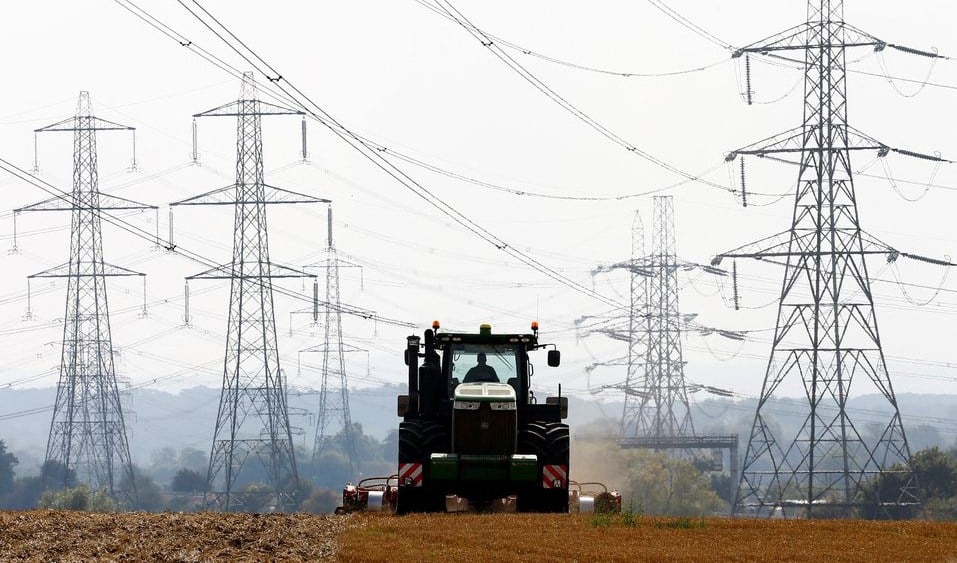UK asks EU for emergency aid, extra power, to avoid blackouts
The request is approved through the supply of subsea cable imports from the Netherlands, which if denied, the UK would have had to face even bigger blackouts than anticipated.
-

Electricity pylons in Ratcliffe-on-Soar, in a field in the UK (Reuters)
With fear of potential and increasing blackouts, the UK has asked Europe for immediate assistance with extra power as a result of an alleged fault on the southern network.
The Times reported that the request was made for power supply from subsea cable imports from the Netherlands, which if denied, could have forced the National Grid Electricity System Operator (ESO) to close down power exports, which may have been diminishing UK supplies.
Phil Hewitt, an employee at the EnAppSys consultancy firm, stated that there is more “need to invest in more transmission capacity” of power for the Southeast, amid soaring energy prices and thus more blackouts.
Read next: UK: Millions can't afford heating as 'dangerous cold' looms - Guardian
It has become such a desperate situation that approximately one million homes and businesses signed up for a scheme that actually pays them to shut off ovens, dishwashers, washing machines, and even lights.
Potential backups
Craig Dyke, head of the national control of the National Grid Electricity System Operator that leads the Demand Flexibility Service (DFS), saw the “world-leading” scheme as an opportunity every winter to “drive forward towards net zero". When asked if it could become a British routine each winter, he said, “It's something we strongly believe in. This is the start of something much, much bigger.”
In its statement on Thursday, the National Grid Electricity System Operator requested that coal-fired power plants be used to serve as a backup option for power generation, adding, “The ESO has issued a notification that we will warm winter contingency coal units for potential use on Thursday 26 January,”
The energy crisis in the UK has been exacerbated partially by the Covid pandemic and then even more after the start of the war in Ukraine - more specifically, the draconian sanctions that the UK has imposed on Russia after the war.
Food, heating, electricity, and much more have had to be compromised across the UK as energy bills soar, tensions between tenants rise, and the cost of living increases. Due to rising energy prices, just one in six UK residents are turning on the heat as frequently as they would - only 18% of the population.
Moreover, two years after Brexit, the British economy has declined rapidly, with its GDP falling by 5.5 percent.
Read more: Tesco locks chilled meats fridge to prevent shoplifting during crisis

 3 Min Read
3 Min Read








